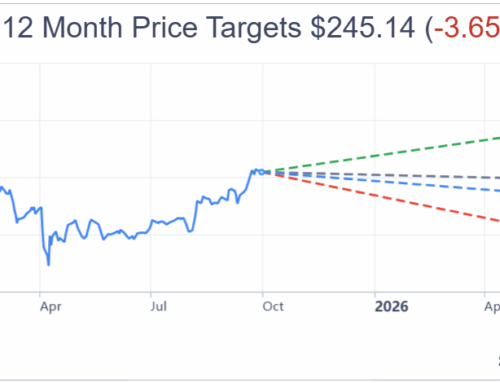Harassment Suit: Whispered Remark Created Hostile Environment
September 30, 2025

Sometimes, things can get uncomfortable or awkward at work. But to cross the line into illegal harassment, there needs to be something more: what the law calls “severe or pervasive” negative conduct or behavior.
In a recent case from eastern Pennsylvania, a federal district court ruled that a supervisor’s whisper into a subordinate’s ear, though uncomfortable, did not rise to the level of illegal harassment.
The lesson for HR pros: Though we all strive to cultivate a work environment where everyone feels comfortable all the time, employers are not on the legal hook for isolated awkward moments or petty slights that don’t rise to the level of harassment.
Peter Nyamu worked for Merck as a biotechnician. In that job, he worked in a sterile setting and was periodically tested to make sure he was not allowing contamination to enter the workplace environment.
After he failed the tests six times in a year, Nyamu was barred in August of 2021 from working in a sterile area. The ban was set to last for one year. As a result, he found himself in a position where he could bid for a different open position or be moved to a non-sterile department until the ban ended.
In mid-September of 2021, Nyamu filed a grievance in which he alleged that his supervisor leaned close to him and whispered a comment about his distinctive voice at a July staff meeting. Nyamu, who speaks with a heavy accent, said the comment created a hostile working environment.
Nyamu followed that grievance with three more over the next two months. One said he was not getting enough overtime; another asserted that the overtime decrease was in retaliation for his first grievance about the whisper; and the third introduced the claim that the challenged actions were based on his African descent.
In March of 2022, Nyamu was moved to a non-sterile department. In January of 2023, he successfully bid into a role in another department.
Nyamu sued Merck, alleging that it violated Title VII by subjecting him to a hostile work environment based on his sex and moving him out of his department because he complained about his supervisor’s behavior toward him.
A federal district court ruled against him.
The court explained that to win on his claim of unlawful retaliation under Title VII, Nyamu had to show he engaged in “protected activity” — meaning he had to show that he either participated in Title VII proceedings or opposed what he reasonably believed to be conduct that amounted to harassment and broke the law.
Nyamu didn’t clear that hurdle, the court said. It ruled that no reasonable person would think the supervisor’s conduct violated Title VII.
The supervisor’s alleged comment about Nyamu’s distinctive voice was not “inherently derogatory,” the court said, and it was an isolated incident.
Nyamu’s subjective belief that the comment violated Title VII did not make it so, the court explained. As a result, it ruled for Merck on the claim of unlawful retaliation.
Nyamu’s hostile work environment claim based on sex fared no better. The court said the whispered comment was unrelated to Nyamu’s sex. In addition, it was not nearly severe enough to create a hostile work environment by itself, and there was no showing of a pervasive hostile environment.
The supervisor’s conduct may well have invaded Nyamu’s personal space and “caused him to suffer some degree of discomfort,” the court said, but it did not adequately support a claim of harassment that created a hostile work environment under Title VII.
The court ruled for Merck on Nyamu’s claims of retaliation and hostile work environment.
Here are some key takeaways from this case for HR pros.
First, Title VII bans discrimination, but it does not require a perfect job environment. Petty slights and awkward moments happen at work, and Title VII does not go so far as to ban them. Instead, legal liability is not triggered absent a showing of “severe or pervasive” harassment. A single incident does not suffice unless it is very severe (e.g., rape), though a series of much less serious misconduct over time can constitute a violation.
Second, the question of whether a work environment is illegally hostile under Title VII is determined by reference to an objective standard. The question is whether a reasonable person would consider the job environment to be unreasonably intimidating, hostile or abusive. In this case, the employee believed the supervisor’s conduct went too far under Title VII. But the court said that applying the reasonable person standard, it did not.
Third, to win on a retaliation claim under Title VII, the employee has to show they engaged in protected activity. This means that they either participated in Title VII proceedings or opposed what they reasonably believed to be unlawful behavior. In this case, the court found it was not objectively reasonable for the employee to think his supervisor’s conduct amounted to harassment that violated the law.
Finally, remember that Title VII’s ban on discrimination includes discrimination based on accent. Employers can make job decisions based on accent only if the accent materially interferes with one’s ability to do the job. If it does not, taking a negative job action against an applicant or employee based on their accent is likely unlawful discrimination under Title VII. In this case, the employee alleged only sex discrimination, and the court carefully pointed out that it did not consider the question of whether the supervisor’s conduct was based on the employee’s accent.
Nyamu v. Merck & Co., No. 22-4788 (E.D. Pa. 9/8/25).
Search
RECENT PRESS RELEASES
Related Post




